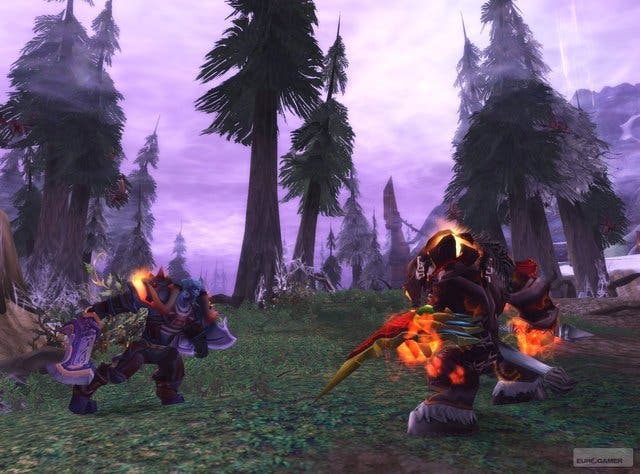Just one more go...
Eurogamer quizzes Panorama on addiction special.
How addictive are videogames? Last week flagship BBC investigative series Panorama announced plans to turn its lens on this controversial and sensitive issue, to coincide with the launch of World of Warcraft: Cataclysm. The games industry winced at this news and, let's be honest, prepared for the worst.
The programme airs on BBC 1 this evening but Eurogamer was able watch the finished documentary in advance. We also spoke to director and producer Emeke Onono about why Panorama chose to highlight this issue, and why he thinks the industry should be less "defensive" about it.
In the Panorama programme, titled 'Addicted to games?', reporter Raphael Rowe meets a series of people who, it is claimed, have developed an addiction to videogames that is wreaking havoc on their emotional and social lives.
Joe Staley, from Nottingham, "couldn't physically pull away from" Modern Warfare 2 and was thrown out of university in thousands of pounds of debt.
Leo, 22, played World of Warcraft for "12 hours per day for two years", and calls it "a disease". He says, "It's horrible... I would never inflict this game on anyone."
Alison Dando, mother of Chris, recounts her son's "outpouring of violence" after the family's internet connection was switched off and he could no longer play Warcraft. "He just went beserk," she says.
"My dad almost had to pin me down on the ground," Chris adds.
Onono insists, however, that the documentary is not anti-gaming. He believes it tackles a subject about which there is still a great deal of ignorance.

"What we've said is there's a potential for things in games to be addictive," he told Eurogamer.
"There is a potential there. And that's something the industry's always doggedly denied. The fact is it's there and, however small or large that possibility is, it needs to be researched and acknowledged."
Onono accuses elements of the games industry of being "very defensive" over the issue and interpreting any mention of gaming addiction as "another bashing of the industry". He counters:
"There have been some scientific studies which are suggesting there could be a problem. A small problem, but given the ubiquity of games, a small problem could be a big problem in that there could be a serious underlying issue that needs to be looked at. That's what started off the investigation."
The argument in defense of gaming here is that the vast majority of players never experience any issues - however long they play for. Surely, as seems to be the case with the subjects in the documentary, obsessive gaming is a symptom of much deeper problems rather than the cause?
Take Joe. Having quit gaming, he suggests people should "go out and get smashed" instead. Lee tries to give up Warcraft but returns to the game because: "I was bored. I didn't have anything to do."
The documentary also features two Korean parents whose child died through neglect, a tragedy blamed on their addiction to online game Prius Online. They are described by a psychologist as "depressed", "mentally not that stable" and having "low IQs".

"We do say several times it's a small minority," insists Onono. "But it's an issue that does need to be raised and does need to be discussed.
"In many cases there is an underlying issue. A child might be bullied or they may have self-esteem problems or they may be depressed. By turning to games they find they can forget about it for a while. What the research suggests is that what then develops is a kind of symbiotic thing with the games where they become a problem in themselves. "
This point is made in the programme by Professor Mark Griffiths. Based at Nottingham Trent University's Gaming Research Unit, he's a leading expert in the field of technology and addiction.
"The good news is, for the vast majority of people videogames is something positive in their life," he says.
"But we have to take on board that there is a growing body of literature that says, for a small but significant minority, things like gaming can be potentially problematic".
Eidos president Ian Livingstone, interviewed in the documentary, argues: "There's no formal published medical evidence saying games are addictive anywhere in the world. You could say people get addicted to football, or get addicted to TV – they used to say people were addicted to television."
Meanwhile games industry trade body UKIE states, in a release drafted to coincide with tonight's broadcast: "There is currently no proven link between videogames and addiction, with there being mixed opinion among academics about whether a game can be clinically addictive. There is no official medical diagnosis of videogame addiction."

